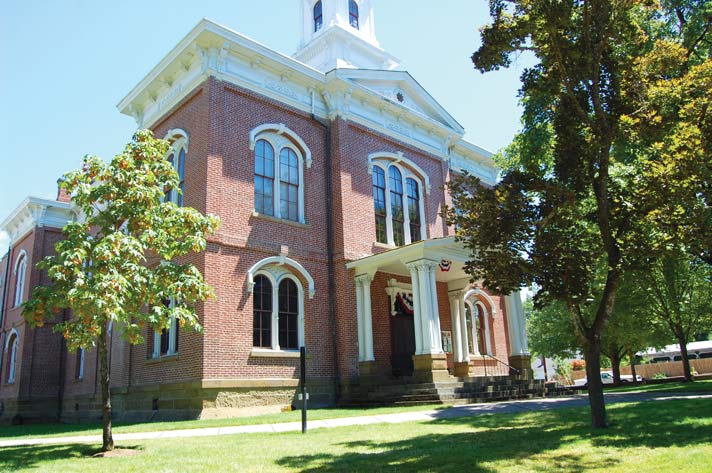The Jacksonville City Council voted unanimously to approve the following resolution in opposition to a meals tax. Please read the entire resolution here.
RESOLUTION NO. R2018-010 – A RESOLUTION OPPOSING BALLOT MEASURE 15-180
WHEREAS, the Jacksonville City Council finds:
- As required by Oregon law, Jacksonville (City) has a Budget Committee of the seven City Councilors and seven citizen volunteers charged with helping the City establish its budget for essential City services;
- The Budget Committee, knowing that virtually all of Jacksonville’s general property tax revenues were used to support its police services, thus endangering the City’s ability to support other needed City services, sought a funding source to supplant $400,000 of funding for police services;
- The Budget Committee considered seeking a property tax levy on properties in the City, but rejected it because it would be spread unequally on property values, last for only 5 years and had low success rates in other comparable elections;
- The Budget Committee considered a food and beverage tax (meals tax) modeled after one in Ashland, but rejected it because it fell disproportionately on a tiny number of local businesses and showed little chance of consistently raising the needed funds;
- The Budget Committee considered a surcharge on the City water and sewer utility bills and accepted it because a like surcharge was approved by the Oregon Supreme Court, the costs would be borne by everyone benefiting from full-time police services and its revenues would be consistent;
- Therefore, the Budget Committee, by a supermajority, voted to recommend to the City Council that it consider the use of a utility bill surcharge to supplement funding for City police services;
- Having duly considered the Budget Committee’s recommendation, the City Council adopted an ordinance putting into effect on July 1, 2018, a surcharge of $20 per month on each City customer bill, with the conditions that: revenues from the surcharge would used exclusively for police services and no other; the surcharge would not be raised for a period of five years; and a surcharge relief program for persons of low income be established;
- By subsequent resolution, the City Council adopted a relief program for the surcharge, by which utility bill payers with incomes of between $30,000 and $25,000 pay $10 per month and those with incomes of less than $25,000 pay nothing;
- An initiative petition has placed an initiative measure, designated “City of Jacksonville Measure 15-180,” to add a food and beverage tax to the City’s Municipal Code (15-180) on the November 6, 2018 general election ballot;
- By its terms, 15-180 would: require the sellers of food and beverage items to collect and remit to the City, a tax of 5% on the prices of such items; last for a term of 10 years unless removed by a vote; and repeal the police funding surcharge;
- 15-180, if adopted, would severely impact the few food and beverage sellers in the City, endangering their economic viabilities and those of the entire City business community that is reliant on shared patronage;
- 15-180, if adopted, would not provide its claimed funding because it is based on flawed assumptions taken from Ashland’s vastly larger number of taxable sellers, much larger resident population and greater number of visitors over a much longer visitor season;
- 15-180, if adopted, would not provide consistent funding needed to support City services because it cannot take into account factors such as economic downturns, harsh weather and now-frequent smoke adversely affecting the business of the taxed sellers; and
- 15-180 fails to provide alternatives when it raises insufficient funds.
NOW, THEREFORE, THE CITY COUNCIL OF THE CITY OF JACKSONVILLE RESOLVES, THAT, BASED ON THE ABOVE FINDINGS, IT OPPOSES MEASURE 15-180 AND URGES ALL JACKSONVILLE VOTERS TO VOTE “NO” ON MEASURE 15-180.
